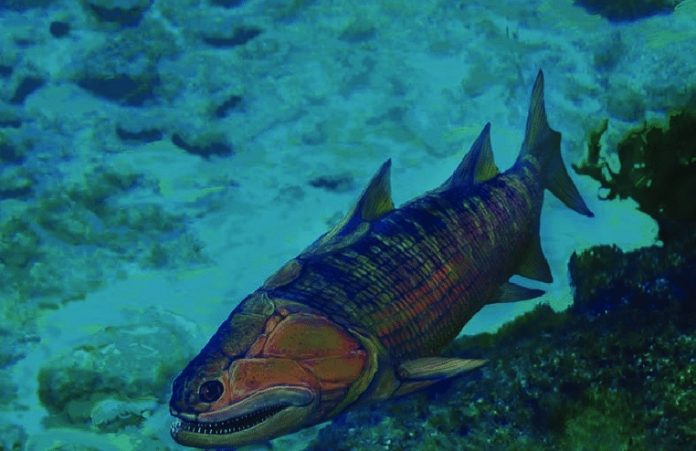Previous evidence suggests that vertebrate animals including humans evolved from cartilaginous fish that were the earliest relatives of modern sharks. New analyses of one of the oldest know fossil fish has shown this concept to be in error. Sam Giles of Oxford University’s Department of Earth Sciences and Dr. Matt Friedman of Oxford University’s Department of Earth Sciences reported the findings in the edition of the journal Nature.
The Janusiscus fossil is the partial remains of a fish that lived 415 million years ago. The skull was originally found near the Sida River in Siberia in 1972. External examination of the bones of the ancient fish indicates that the animal was a bony fish that was probably an early relative of all vertebrates. An X-ray and computerized tomography scan of the skull revealed cartilaginous plates that are an indication of being related to sharks.
The analysis destroys previous thought that jawed vertebrates evolved from fish that had cartilage. Likewise the discovery indicates that vertebrates did not evolve from fish that had only bones. The analysis is the first to describe an ancient fish that has the skeletal features of both bony fish and cartilaginous fish. The fossil is not the original ancestor of all fish.
The discovery suggests that both bony fish and vertebrates and cartilaginous fish like sharks had a common ancestor. At some unknown point in time the original fish diverged into two groups. One developed a bony skeleton and one adapted to a cartilage skeleton. The analysis disproves much of what was previously thought about fish and vertebrate early evolution.















